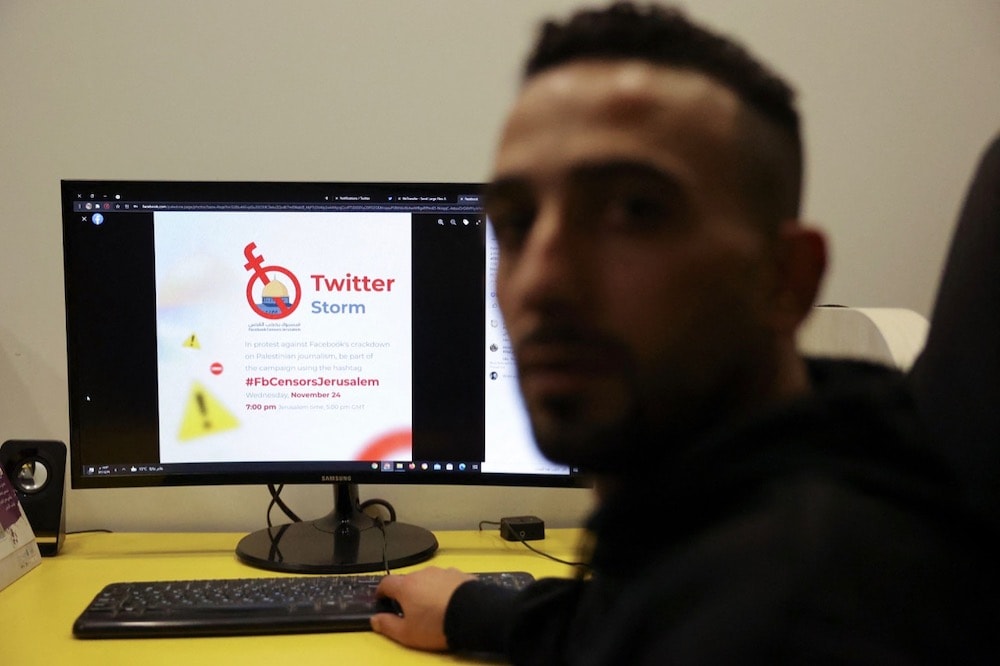IFEX joins 7amleh and other organisations in urging Meta to commit to implementing the recommendations of the BSR report, and to take decisive action to protect the voices of Palestinians among other oppressed peoples and groups around the world.
We appreciate and value BSR’s efforts and professionalism through their assessment and independent review. We especially acknowledge their engagement with local, regional and international stakeholders and right-holders throughout the process. Launching this due diligence report is a step in the right direction. importantly, we look forward to Meta’s unequivocal commitment to implementing the recommendations of this report. More generally, we urge Meta to take decisive action to protect the voices of Palestinians among other oppressed peoples and groups around the world.
BSR’s findings provide further evidence of the over-enforcement of Arabic content compared to Hebrew content, and under-enforcement of content moderation policies on Hebrew language content. The latter was, according to BSR, “largely due to the lack of a Hebrew classifier”; some of these problems have been documented for years by 7amleh, The Arab Center for the Advancement of Social Media. Furthermore, the report cites adverse human rights implications to Palestinians’ right to freedom of expression, freedom of assembly, freedom to political participation, and non-discrimination. BSR also found evidence of Meta’s policies and practices leading to biased outcomes, which negatively impact Palestinian and Arabic speaking users.
Notwithstanding our support for much of BSR’s work, we must provide some important caveats that would help Meta address these problems more systemically. First, BSR distinguishes between intentional and unintentional bias, and states that it only found evidence of unintentional bias in Meta’s policies and practices. However, we have been calling Meta’s attention to the disproportionately negative impact of its content moderation on Palestinians for years. Therefore, even if the bias started out as unintentional, after knowing about the issues for years and not taking appropriate action, the unintentional became intentional.
Furthermore, though BSR accurately identified many root causes of the over-enforcement of content moderation on Palestinian and Arabic content, they have underestimated the role of the Israeli government. The Israeli cyber unit sends tens of thousands of voluntary content takedown requests annually to Meta, and the company has historically complied around 90% of the time. This is only one example of many that highlights Israel’s special relationship with Meta, despite the extensive documentation and evidence by international, Palestinian and Israeli human rights groups, of Israel’s systematic, multidimensional violation of Palestinian human rights. Israel leverages this relationship to pressure Meta to take down Palestinian content, as Defense Minister Benny Gantz publicly did during the May 2021 uprisings.
In an effort to ensure Meta fulfills its human rights obligations, BSR recommends a series of steps that also align with civil society’s repeated demands on Meta over the years. BSR stated that Meta should reevaluate certain content moderation policies, take substantial action to increase transparency around their content moderation practices and policies, invest in more precise Hebrew and Arabic language content moderation resources, and establish greater clarification around its legal obligations with regards to Foreign Terrorist Organizations and State Designated Global Terrorists. These recommendations are a step in the right direction, and need to be taken seriously by Meta. We call on Meta to provide complete transparency on voluntary content removal requests from the Israeli government, including its Cyber Unit, as well as where and how automated decision making are being used for content moderation, and about content policies related to the classification and moderation of “terrorism” and “extremism”.
In addition to the report’s recommendations, 7amleh’s racism and hate speech index between 6th to the 21st May 2021 showed a 15-fold increase in violent speech compared to the same time period of the previous year. Thus, Meta must improve their Hebrew language content moderation by creating a Hebrew hate speech lexicon.
Finally, these recommendations will only be successfully implemented if Meta truly commits to a co-design process with civil society, as well as if it provides a detailed timeline for exactly how they will commit to, and implement these recommendations in full transparency and in line with the United Nations Guiding Principles on Business and Human Rights. Meta has stated that it is committed to co-design, therefore, we stand ready to work with them and we urge Meta to start the process as early as possible.



